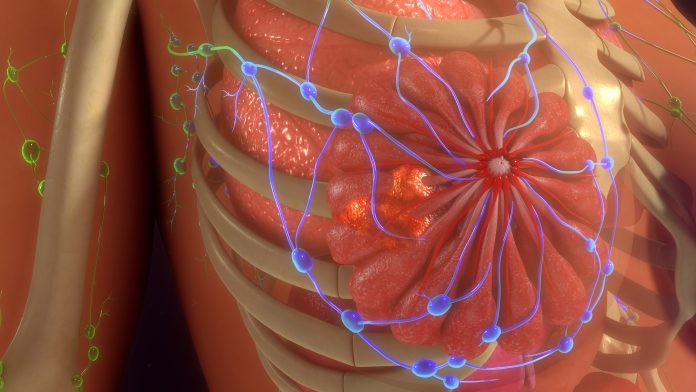
A new study found that Reveal Genomics’ ctDNA- and machine learning-based liquid biopsy could predict response to certain therapies and survival in breast cancer. The multi-gene signatures identified several subtypes of the disease and were able to distinguish features such as measures of tumor proliferation and estrogen receptor signaling.
Ana Vivancos, Co-Founder and consultant to REVEAL GENOMICS, said, “Our novel approach can have huge implications in the clinical setting, and opens new opportunities for the discovery of multi-feature genomic predictors coming from ctDNA in breast cancer and other types of cancer.”
The findings of REVEAL’s study were published in Nature Communications earlier this month, in collaboration with several academic institutions in Spain and the U.S.
In cancer patients, cell-free DNA (cfDNA) contains a fraction of circulating tumor DNA (ctDNA), which can help uncover tumor-borne genetic alterations. There are currently almost 500 clinical trials looking at cfDNA in cancer, based on data from clinicaltrials.gov.
These investigators sequenced cfDNA from 459 patients with metastatic breast cancer, including 245 patients with hormone receptor-positive/HER2-negative (HR+/HER2-) treated with endocrine therapy and a CDK4/6 inhibitor (i.e., palbociclib, ribociclib or abemaciclib).
The team started by applying REVEAL’S proprietary machine-learning multi-gene signatures in plasma and linked to DNA/RNA/protein data from tumor tissue (paired samples). The multi-gene signatures tracked complex biological features successfully in ctDNA. These features include, among others, measures of tumor proliferation and estrogen receptor signaling, similar to what is accomplished using direct tumor tissue DNA or RNA profiling.
For example, REVEAL’s estrogen receptor (ER) signaling signature predicted the ER status of the tumor tissue as determined by standard immunohistochemistry.
The researchers also discovered that the combination of 150 biologically relevant signatures identified four new DNA-based molecular subtypes of breast cancer. More importantly, these four biological entities were strongly associated with survival outcome in patients with early-stage and/or metastatic HR+/HER2- breast cancer.
Finally, the investigators focused on a particular genomic signature called retinoblastoma loss-of-heterozygosity (RB-LOH), which was designed to capture tumor biological status induced by the loss of RB—a known key player in tumor cell division needed for CDK4/6 inhibitors to work.
In patients with metastatic HR+/HER2- breast cancer treated with endocrine therapy and a CDK4/6 inhibitor, REVEAL’s ctDNA RB-LOH signature identified the 20-30% of patients who do not respond well to this treatment.
Aleix Prat, Co-Founder and CSO of REVEAL GENOMICS and the lead author of the study, explained, “Our proprietary and novel supervised learning computational approach predicts complex tumor features including gene expression, protein and tumor histology using one data source: DNA sequencing. Here, we demonstrate that our approach is feasible in plasma cfDNA and that it provides clinically relevant information.”
Patricia Villagrasa, Co-Founder and CEO of REVEAL GENOMICS, said, “This new ctDNA-based assay, called DNADX, is our second product [and] expected to be available in 2024.”
REVEAL’S first test is HER2DX, which is for patients with HER2+ breast cancer, and helps determine long-term relapse risk. Probability of therapy response, and tumor HER2 expression levels.











